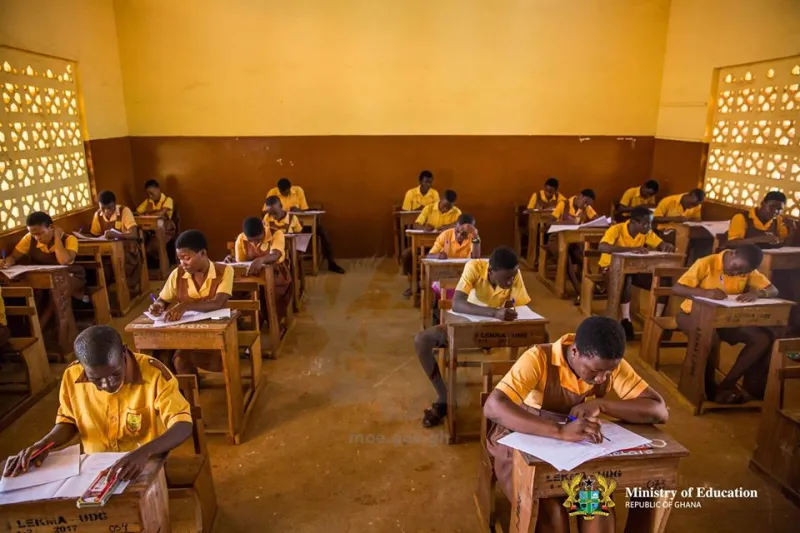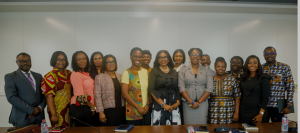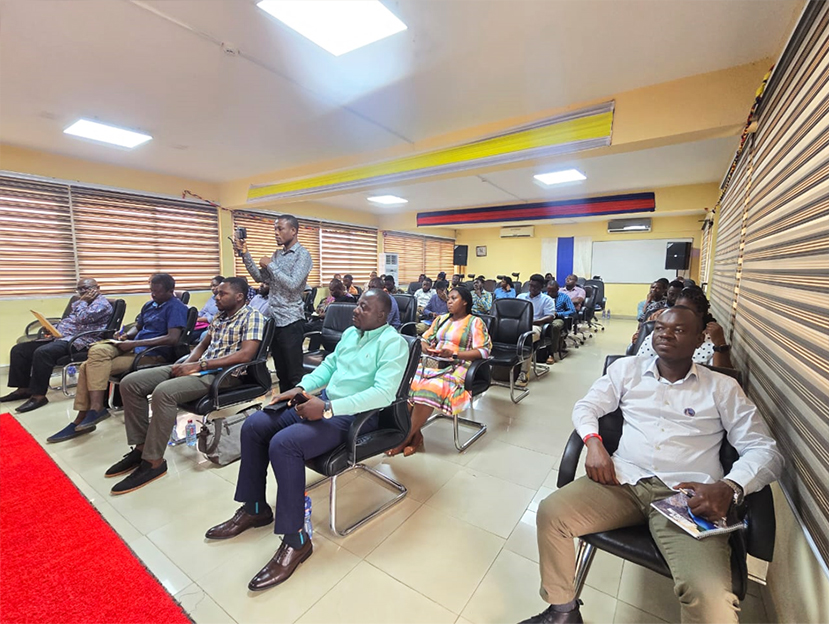
By Joshua AMLANU
Government is putting data at the centre of its policy strategy, tying evidence-based governance to economic recovery and social inclusion as it prepares to co-host the Global Data Festival next year.
Vice President Professor Naana Jane Opoku-Agyemang told participants at the Pre-Global Data Festival High-Level Meeting in Accra that decisions must be grounded in facts rather than rhetoric.
“Policy must be informed by facts, shaped by reality and designed for inclusive impact,” she said.
The vice president linked recent positive national economic performance to a data-driven approach. Gross domestic product expanded 5.3 percent in first-quarter 2025 while inflation slowed to 12.1 percent in July, she said. The narrowing fiscal deficit, according to her, is “a positive signal of wealth recovery and security”.
Prof. Opoku-Agyemang outlined a series of government initiatives tied to the broader data agenda. These include the ‘One Million Folders’ programme, which seeks to equip young Ghanaians with digital and cultural skills to compete in the global economy and the creation of GoldWorth, a new agency to regulate gold trading and combat illegal mining.

The mining sector is undergoing what she described as its most sweeping reforms in two decades, with shorter licence durations and mandatory local development contributions.
Data is also being used to strengthen resilience across sectors. Government is deploying real-time monitoring systems for land use and forests, weather-resilience tools for agriculture and satellite tracking for coastlines. These initiatives, she said, aim to mainstream data stewardship across ministries and agencies.
Ghana is also positioning itself as a leader in South–South collaboration on data governance. Partnerships with Colombia and Kenya were cited as examples of how developing countries can use citizen-generated data to improve policy outcomes.
“These relationships show our potential to reshape data governance for the exchange of knowledge and advancement of inclusive data systems,” Prof. Opoku-Agyemang said.
She added that global partnerships with the UN, World Bank and Global Partnership for Sustainable Development Data are critical to sustaining momentum.
Government Statistician Dr. Alhassan Iddrisu, in a separate address, emphasised the importance of treating data as a public good and the foundation of accountability.
“From climate change to inequity, the issues before us demand evidence,” he said.
Dr. Iddrisu highlighted Ghana Statistical Service reforms to institutionalise data use across government: including 26 new data-sharing agreements with ministries and agencies, rollout of a National Data Science Roadmap and the planned launch of a National Statistics and Policy Observatory to provide real-time evidence for decision-making.
He said these initiatives are framed by the Power of Data Action Plan and a forthcoming national strategy for statistics.
Both officials stressed the importance of collaboration beyond Ghana’s borders.
Dr. Iddrisu noted that Ghana’s approach has inspired reforms in Sierra Leone, Togo and Botswana, adding that cooperation across Africa, Latin America and Asia is “not just possible, it is powerful”.
With the 2026 Global Data Festival-Nairobi in focus, Ghana plans to showcase progress in data-driven modernisation – particularly at the Ghana Revenue Authority.
The vice president said the goal is to highlight innovations in machine learning, disaster planning, and citizen-led solutions.
“When we meet again next year, it should be to celebrate our progress and show that the Global South has taken its rightful place in the global data movement,” she said.
The post Gov’t bets on data for inclusive growth appeared first on The Business & Financial Times.
Read Full Story
















Facebook
Twitter
Pinterest
Instagram
Google+
YouTube
LinkedIn
RSS